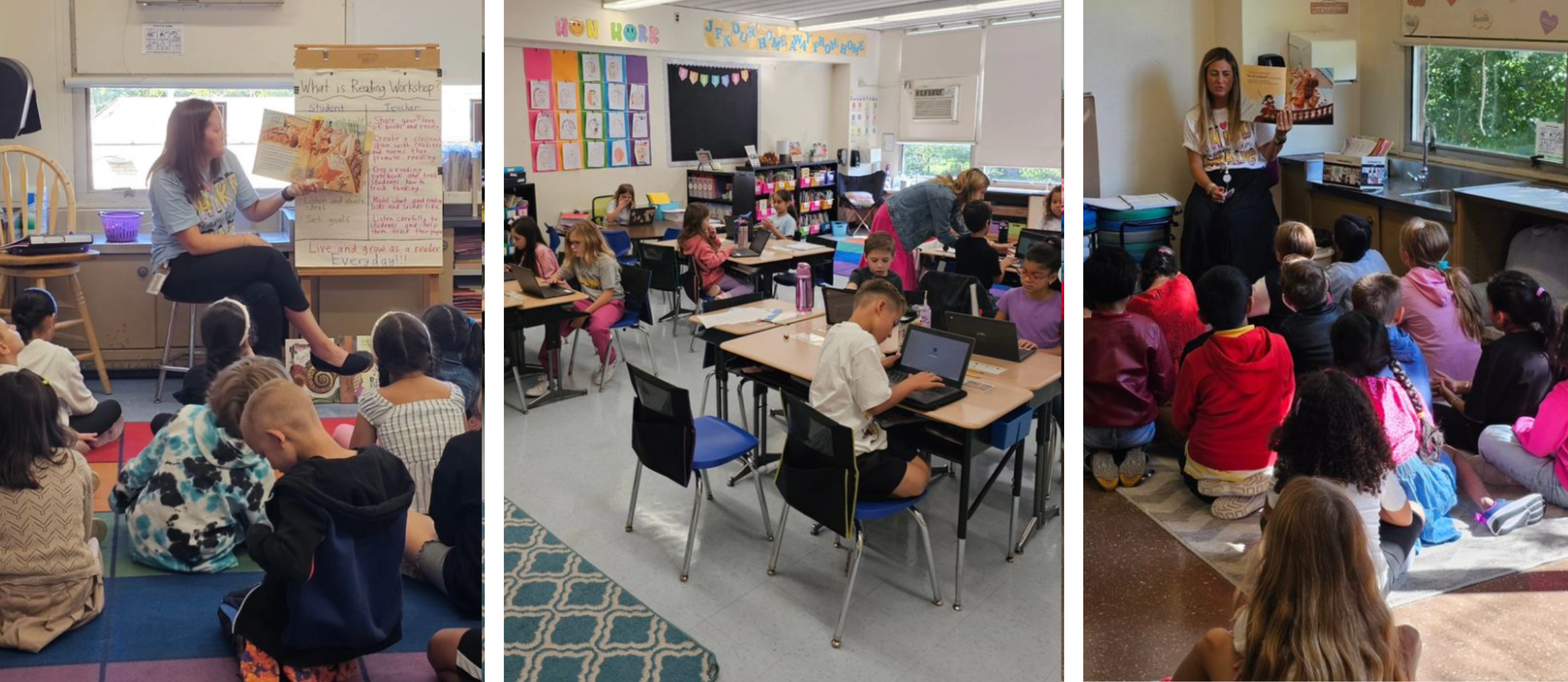Discover the Advantages of Advocacy: Save Temecula Schools
Discover the Advantages of Advocacy: Save Temecula Schools
Blog Article
Exactly How Schools Play a Crucial Duty in Shaping Future Leaders and Trendsetters
By integrating project-based understanding and interdisciplinary research studies, instructional organizations test students to analyze and manufacture complex info. Teachers serve as coaches, directing pupils and nurturing their possibility, while extracurricular activities even more create management abilities and resilience.
Promoting Important Believing
In today's rapidly developing world, fostering crucial assuming within schools has actually ended up being paramount. As culture grapples with significantly complicated global challenges, the capability to assess, evaluate, and synthesize information is necessary. Institutions play a vital role in establishing these skills, preparing students to navigate and resolve multifaceted troubles with notified, reasoned decisions.
To grow crucial thinking, instructors utilize various pedagogical techniques that encourage active discovering and intellectual engagement. Classroom discussions, problem-based knowing, and Socratic questioning contribute in promoting reflective and logical thought procedures. By testing pupils to question presumptions and think about several perspectives, these techniques ensure a much deeper understanding of topic beyond memorizing memorization.
In addition, incorporating essential thinking across the curriculum enhances its relevance and applicability in varied contexts. Topics such as mathematics, scientific research, history, and literature each deal one-of-a-kind possibilities to develop pupils' critical faculties. For example, evaluating historic occasions calls for comprehending and reviewing sources context, while scientific inquiry needs rigorous theory screening and evidence-based reasoning.
Ultimately, instilling critical assuming skills in students equips them with the cognitive tools required for lifelong knowing and versatility. It is with this fundamental capability that future leaders will be able to introduce, address issues, and add meaningfully to culture.
Urging Creativity
Embracing creative thinking within instructional frameworks galvanizes pupils to think beyond conventional borders and discover innovative solutions. By incorporating artistic endeavors and creativity exercises right into the educational program, institutions grow an atmosphere where creativity and creative thought are valued. This strategy not only improves the educational experience however likewise gears up students with the ability to take on real-world obstacles in unique methods.
University can foster creative thinking with varied means such as project-based learning, interdisciplinary research studies, and the unification of arts and technology. Project-based understanding, for example, motivates students to apply their expertise in functional, often joint, jobs that demand innovative problem-solving abilities. Interdisciplinary researches enable pupils to attract links between various subjects, consequently broadening their perspectives and enhancing their creative abilities.
In addition, providing trainees with possibilities to engage with emerging modern technologies, such as coding and electronic style, further supports their innovative potential. These activities prompt pupils to experiment, fall short, and iterate, which are crucial elements of the imaginative process (Save Temecula Schools). By preserving an encouraging atmosphere where trial and error is motivated, institutions can make sure that pupils develop the confidence to seek innovative concepts
Essentially, nurturing imagination in academic setups is crucial for shaping future leaders and pioneers capable of attending to intricate global concerns with resourcefulness.
Supporting Collaboration

Executing group-based learning components and cooperative projects allows trainees to experience the dynamics of team effort firsthand. This not just prepares them for the collaborative nature of modern offices yet also nurtures leadership high qualities as they commonly have to handle duties such as task managers or team coordinators. In addition, cooperation in the class can break down social barriers and promote inclusivity, guaranteeing that each pupil really feels valued and heard.
Moreover, integrating modern technology can even more sustain collective initiatives. Devices like shared electronic work areas and interactive platforms allow students to collaborate effectively, even outside the classroom. As pupils create these collective abilities, they are better outfitted to take on complicated challenges and introduce, laying the groundwork for their future functions as trendsetters and leaders.
Duty of Educators as Coaches

Mentorship includes individualized focus, where teachers determine and nurture individual toughness and address weaknesses. Save Temecula Schools. With one-on-one communications, educators can tailor their suggestions and assistance to meet each trainee's special needs, promoting a sense of self-confidence and strength. This individualized strategy cultivates a development attitude, urging trainees to check out failings as opportunities for finding directory out and development
Furthermore, instructors act as function models, demonstrating the values of perseverance, compassion, and stability. Their activities and perspectives give a plan for students to emulate, instilling a sense of moral duty and social understanding. By creating a encouraging and comprehensive class setting, instructors enable pupils to establish interpersonal abilities that are important for effective leadership.
Fundamentally, the mentorship provided by teachers find out this here lays a foundational structure for the growth of future leaders, equipping them with the knowledge, abilities, and worths required to stand out in an ever-evolving globe.
Effect of Extracurricular Tasks
When integrated effectively into the instructional framework, extracurricular tasks considerably enhance pupil development and management potential. These tasks supply pupils with opportunities to check out passions past the conventional educational program, fostering a versatile skill set.
Pupils engaged in songs, discussion, or dramatization clubs discover to assume critically and method troubles from diverse viewpoints. By teaming up with peers from various backgrounds, students also develop compassion and communication abilities, important characteristics for future leaders.
Research shows that trainees included in such programs tend to have higher grades and better participation records. Hence, institutions that focus on a well balanced approach to education and learning, integrating durable extracurricular programs, are a lot more most likely to produce trendsetters and leaders furnished to meet the obstacles of the future.

Verdict
Finally, institutions considerably shape future leaders and trendsetters by supporting vital thinking, imagination, and cooperation among trainees. Engaging pedagogical approaches such as project-based learning and interdisciplinary researches play find out this here an important function in this development. Teachers, serving as advisors, give crucial assistance and assistance, while after-school activities further improve management prospective and resilience. By fostering a helpful atmosphere that values individual strengths and team effort, schools equip students with the required skills to browse future challenges and drive advancement.
As students develop these collaborative skills, they are better furnished to deal with complicated difficulties and introduce, laying the foundation for their future functions as trendsetters and leaders.
By promoting vital reasoning and problem-solving abilities, instructors assist pupils navigate intricate challenges, preparing them for management roles in different areas.
By collaborating with peers from various histories, students also develop compassion and interaction skills, important traits for future leaders.
In verdict, institutions substantially shape future leaders and pioneers by nurturing crucial reasoning, imagination, and collaboration amongst trainees. By cultivating a helpful environment that values specific staminas and synergy, institutions equip students with the essential skills to browse future difficulties and drive technology.
Report this page